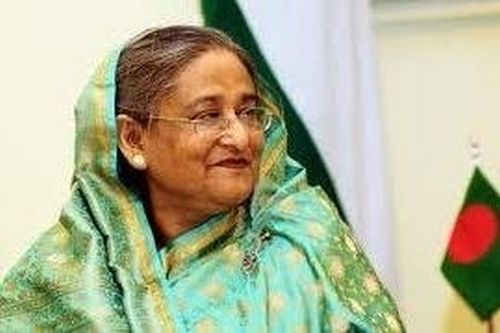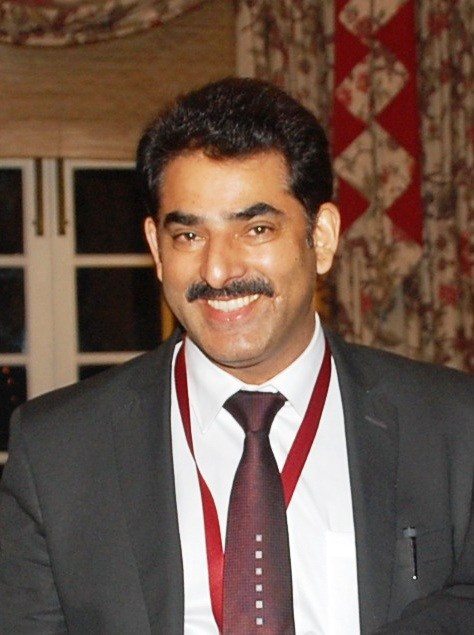BAGHDAD/MOSUL, May 12: Iraqis voted on Saturday for the first time since the defeat of Islamic State, with Prime Minister Haider Abadi, an ally of both the United States and Iran, trying to fend off powerful Shi’ite political groups that would pull the country closer to Tehran.
Iraqis expressed pride at the prospect of voting for the fourth time since the fall of dictator Saddam Hussein, but also said they had scant hope that the election would stabilise a country beset by conflicts, economic hardship and corruption.
Reuters reporters said voter turnout appeared to be low at several polling stations in Baghdad as well as Falluja to the west of the capital and Basra in the south.
The vote’s victors will have to contend with fallout from U.S. President Donald Trump’s decision to pull out of a nuclear deal with Iran, a move Iraqis fear could turn their country into a theatre of conflict between Washington and Tehran.
Abadi, who came to power four years ago after Islamic State swept through a third of the country, carefully managed Iraq’s alliance with both countries. The United States provided military support to Iraq’s army to defeat Islamic State, while Iran backed Shi’ite militias that fought on the same side.
But now that the campaign is over, Abadi faces political threats from two main challengers: his predecessor Nuri al-Maliki, and the leader of the main Shi’ite paramilitary group, Hadi al-Amiri, both of whom are closer than he is to Iran.
The three main ethnic and religious groups — the majority Shi’ite Arabs and minority Sunni Arabs and Kurds — have been at odds for decades, and sectarian divisions remain deep.
Iran has wide sway in Iraq as the primary Shi’ite power in the region. The United States, which invaded Iraq in 2003 to topple Saddam, occupied it until 2011 and sent troops back to help fight Islamic State in 2014, also has deep influence.
Iran’s influence has caused resentment among Sunnis as well as some Shi’ites, who have grown tired of religious leaders, parties and militias and want technocrats to rule the country.
Abadi is considered the frontrunner by analysts, but victory is far from certain. A British-educated engineer without a powerful political machine of his own when he took office, he solidified his standing with the victory over Islamic State. In office he reached out to minority Sunnis, although he alienated Kurds after crushing their bid for independence.
But he has failed to improve the limping economy, and cannot rely solely on votes from his fellow Shi’ites. Even if Abadi’s Victory Alliance list wins the most seats, he still must negotiate a coalition government, which must be formed within 90 days of the election.
Amiri, 63, spent more than two decades fighting Saddam from exile in Iran and leads the Badr Organisation, the backbone of the volunteer forces that fought Islamic State. Victory for Amiri would be a clear win for Iran, which is locked in proxy wars for influence across the Middle East with Saudi Arabia.
Many Iraqis are disillusioned with war heroes and politicians who have failed to restore state institutions and provide badly needed health and education services.
“We need neither tanks nor jets. We need only the ballot paper through which we can rectify the political process which was aborted by those who governed Iraq,” said labourer Khalid al-Shami, 50, at a polling station in Baghdad.
Maliki is seeking a comeback, casting himself as a Shi’ite champion after being sidelined in the wake of the Islamic State advance. Opponents say his sectarian policies during eight years in power created the atmosphere that enabled Islamic State to gain sympathy among Sunnis as it swept across Iraq in 2014.
Since Saddam’s fall, the post of prime minister has been reserved for a Shi’ite, the speaker of parliament has been a Sunni, and the ceremonial presidency has gone to a Kurd – all three chosen by parliament.
More than 7,000 candidates in 18 provinces are running this year for 329 parliamentary seats. More than 24 million of Iraq’s 37 million people are eligible to vote.
In Kirkuk, an oil city disputed by Kurds and the Baghdad government, 90-year-old Najm al-Azzawi has witnessed Iraq’s decades of upheaval: Saddam’s military adventures, international sanctions, the U.S. occupation, sectarian bloodshed and Islamic State’s reign of terror. But he has not lost hope.
“God save Iraqis from the darkness they have been in,” he said. “It is the most joyful thing to vote.”
In the ruins of west Mosul, where Islamic State proclaimed its caliphate in 2014 and fighters held out for most of last year in the face of the biggest battle of the post-Saddam era, turnout appeared strong even though transport was shut for security reasons and voters had difficulty reaching the polls.
“We need new faces not this group of corrupt politicians currently in Baghdad,” said Ahmed Noor, a shop owner.
In the Wadi al-Hajr neighbourhood, several older voters arrived to be told their polling station was several districts over.
“I can’t walk, I can barely move, how am I supposed to walk an hour to the polling station? Both my sons fled Mosul under Daesh and now live overseas,” said Saadia Ahmed Hussein, using a derogatory Arabic term for Islamic State.
She wept at the entrance to the polling station, clutching her cane. “There’s no one to take me by car.”







